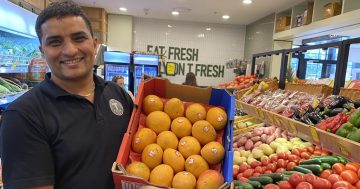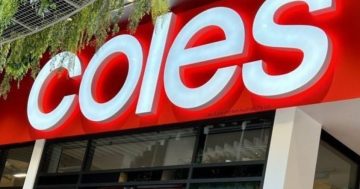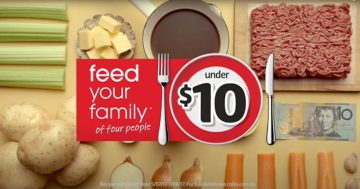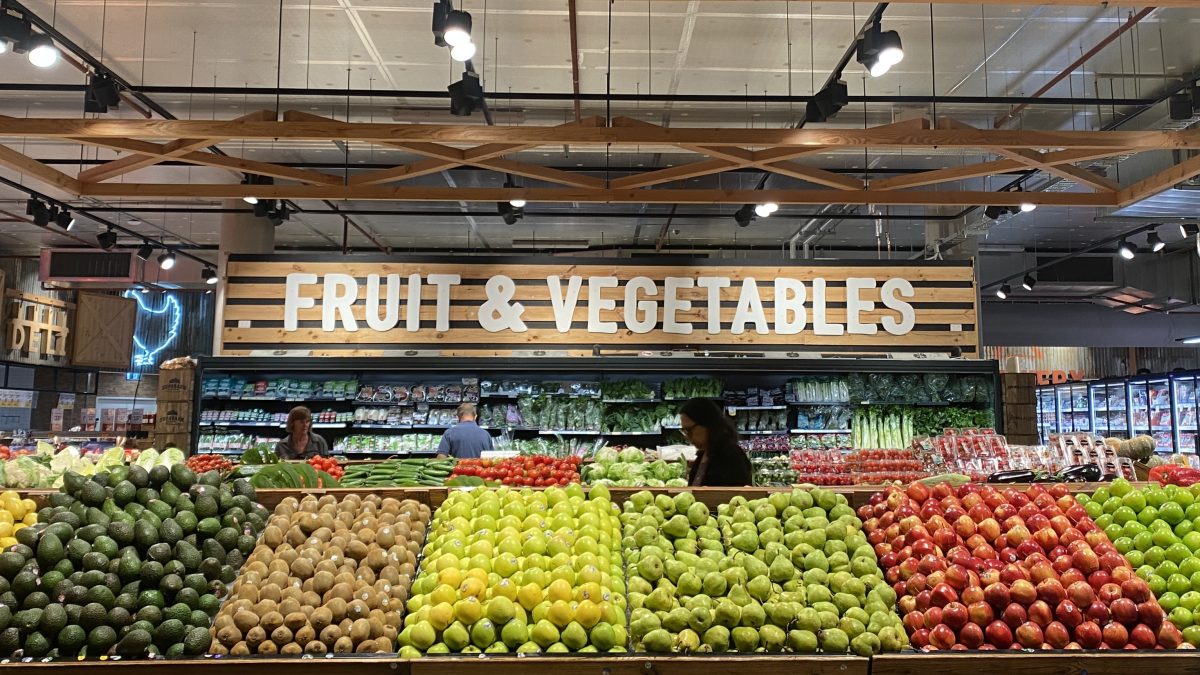
Are supermarkets always a cheaper option? Photo: Lucy Ridge
With a grocery code review underway and a senate enquiry preparing to examine supermarket pricing, Australia’s supermarket duopoly is under pressure. So I set out to conduct my own inquiry, comparing the price, quality and sustainability of fresh produce available at nine different outlets in Canberra.
The list of items compared are regular fruit and vegetable items for many households that are also currently in season in our region and, therefore, available at all of the profiled outlets.
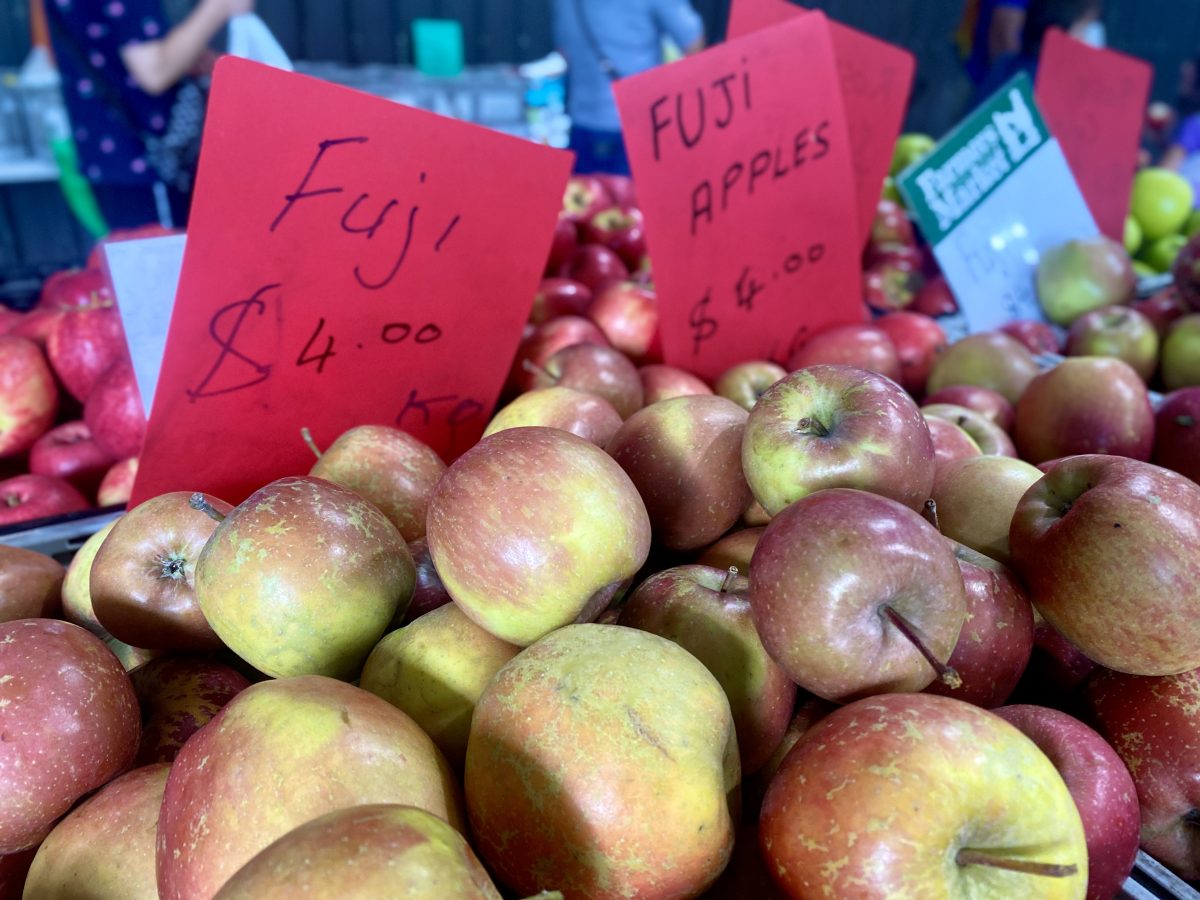
Fuji apples at the Capital Region Market. Photo: Lucy Ridge
The shops visited were Dickson Coles and Woolworths, Ziggy’s Fresh at Fyshwick Fresh Food Markets, Aldi Canberra Centre, Supabarn Kingston and Choku Bai Jo North Lyneham, as well as the weekly produce box subscription scheme from not-for-profit Southern Harvest Association (SHA) and community purchasing social enterprise Box Divvy.
The SHA multi-farm produce box scheme requires ongoing membership. Customers sign up for 13-week seasons, although they do also have an online shop, a Saturday farmers market at Bungendore and a newly opened community store. They also regularly supply fresh produce to the Canberra Food Co-operative.
Box Divvy requires a fee-free membership and members opt-in each week to purchase, collecting from a local hub.
I also visited a range of different stalls at the Capital Region Farmers Market (CRFM). The prices listed for the farmers market were the lowest available on the day, and while there was variation between producers, the prices were generally fairly consistent.
The comparison of prices shows that it is often cheaper to purchase fresh produce from retailers that sell directly from farmers. The clear outlier to this trend was strawberries, which are regularly sold as a ‘loss leader’ at supermarkets. This is where the supermarket sells the berries at the wholesale price, or even at a loss, to draw in shoppers. This practice is disadvantageous to growers, as supermarkets set the prices they will pay the farmer.
Choku Bai Jo, SHA and Box Divvy allow farmers to set their own prices.
The quality and freshness of produce from CRFM, Choku Bai Jo, SHA, Box Divvy and Ziggy’s was significantly better than Coles, Woolworths and Aldi. Supabarn Kingston appeared to have the freshest produce of the supermarkets.
The truss tomatoes at Coles in Dickson have a comparatively low price at $7.50/kg, but these pale, rock-hard, under-ripe tommies would make a sad salad indeed. And the bunches of kale had limp, yellowing leaves that belonged in a compost bin, not at the counter for $3.20 a pop.
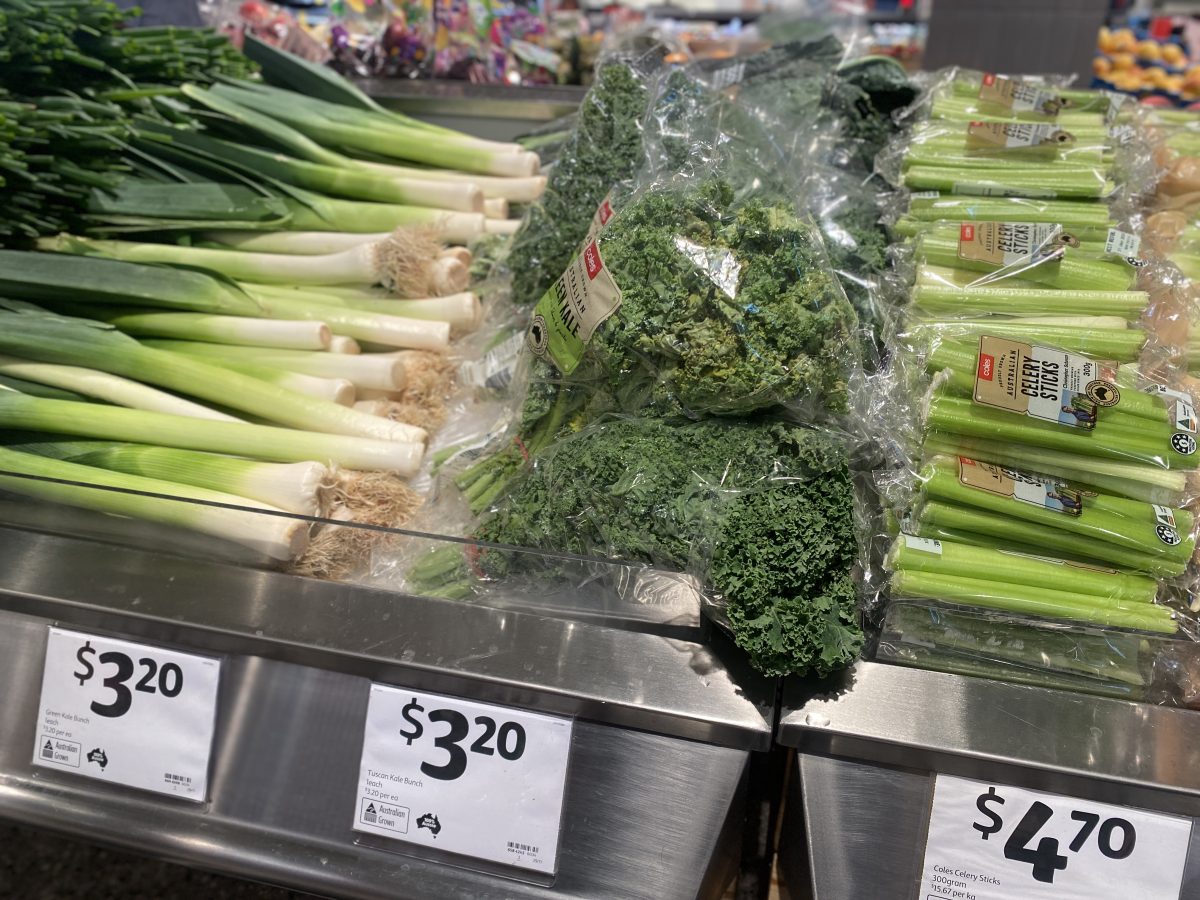
Sad bunches of kale in plastic at Coles Dickson. Photo: Lucy Ridge.
To judge the sustainability credentials of each store, I looked for information about the provenance of their produce (for transport emissions), packaging, and the growing techniques utilised. Conventional farming techniques may use chemical inputs and have worse environmental outcomes than organic, agroecological, biodynamic and regenerative farming techniques.
Choku Bai Jo buys produce from farmers who are certified organic (a costly process), and while their prices were higher than other stores, they were still cheaper than the ‘organic range’ at Coles and Woolworths for all but one profiled product.
While supermarkets proudly display ‘Grown In Australia’ signage, there wasn’t much further information to be found about provenance, except Aldi, which indicates in which state produce is grown on their website. Both Coles and Woolworths state online that 96 per cent of their produce is Australian-grown, with exceptions made for items unavailable in Australia and out-of-season produce. Aldi and Superbarn have a policy of ‘as much as possible’ Australian produce with similar reasoning. Ziggy’s Fresh also has mostly Australian produce sourced via the Sydney markets. Out-of-season items are sourced internationally.
Choku Bai Jo, Southern Harvest, Box Divvy and the Farmers Market are the only sellers that tell customers exactly which farm their produce has come from, with full transparency about growing practices available either through signage, online, or by having a chat with producers, staff, or community members directly.
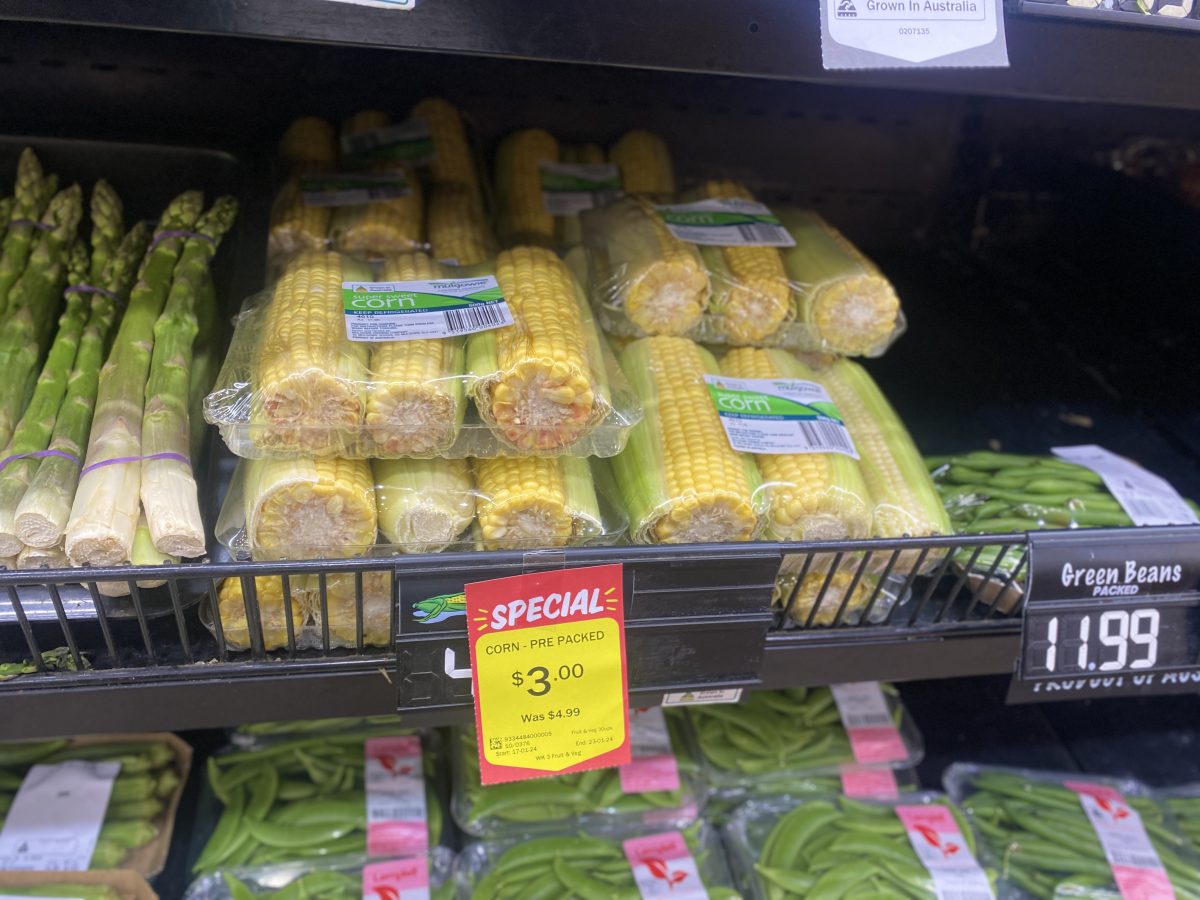
Sweet corn wrapped in plastic. Photo: Lucy Ridge.
There is also an awful lot of plastic wrapping on fruits and vegetables at the supermarkets. Many of the profiled stores sold cobs of corn wrapped in plastic after first stripping them of their naturally protective husks! The farmers market, Choku Bai Jo, Southern Harvest and Box Divvy, by comparison, are largely plastic free and customers bring their own cloth bags or reusable containers. Produce from these sources also had the lowest food miles.
Coles and Woolworths undercut any positive ecological outcomes of their organic range by selling them in plastic packages, presumably to avoid shoppers sneaking ‘organic’ produce through the self-serve checkout as conventionally farmed (and cheaper) goods. But this surely also affects sales as customers concerned with buying organic would likely be concerned about their plastic consumption.
Price doesn’t tell the full story, but it does tell us that prices are not ‘down down’ at the two big players, and it’s worth looking towards local options for better quality, a better price, and a better deal for farmers and the environment.
Lucy Ridge is also an employee of Southern Harvest Association.












